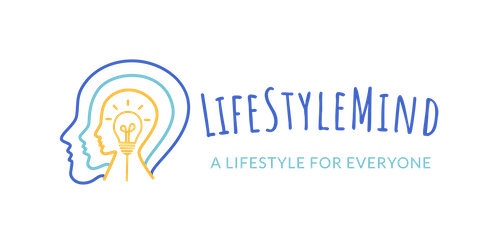Lifestyle Medicine vs Integrative Medicine

In the realm of modern healthcare, there has been a growing emphasis on treating individuals as whole beings, considering not just the physical symptoms but also their mental, emotional and spiritual well-being. Two approaches that have gained significant attention for their holistic nature are Integrative medicine and Lifestyle medicine.
While both share common ground in focusing on comprehensive care, they bring unique perspectives and strategies to the table.
In this article, we’ll explore the differences, similarities and benefits of Integrative medicine and Lifestyle medicine, shedding light on their roles in promoting overall wellness.
Lifestyle Medicine: what is it?
The term “Lifestyle Medicine” refers to a branch of medicine that encompasses the research, prevention and treatment of disorders and diseases caused by factors related to one’s lifestyle.
Incorrect nutrition, chronic stress, alcohol, smoking and the lack of regular physical exercise are among the main factors.
It involves considering an individual’s health and potential dysfunctions as part of a broader context, aiming to integrate traditional medicine and biology with psychosocial sciences and public health.
This requires interdisciplinary collaboration, with a evidence-based scientific approach, aimed at achieving holistic well-being. While it might seem like an innovative idea, the roots of this approach date back over 2500 years.
The pioneer of Lifestyle medicine is recognized as Hippocrates, who in his time began to use lifestyle-related habits such as diet and physical exercise to treat conditions like diabetes.
“Let food be thy medicine, and medicine be thy food.“
“Walking is the best medicine.“
Fast-forwarding to the present day, according to the World Health Organization (WHO) and the United Nations, over 70% of diseases worldwide are caused by lifestyle-related factors: unhealthy diet, chronic psychological stress and lack of physical activity.
Today, Lifestyle medicine is a recognized clinical discipline with a track record of success, often complementing traditional treatments.
So, it’s not just about prevention; it’s also about treatment.
Among the chronic diseases treated with Lifestyle medicine are type 2 diabetes, heart diseases, cardiovascular issues, obesity, hypertension, osteoporosis, depression and various types of cancer.
Lifestyle medicine is a functional medicine, which can be defined as an evidence-based integrated medical approach that focuses on the patient’s biochemical uniqueness and involves personalized interventions to restore physiological, psychological and structural balance.
It is built upon the understanding of fundamental physiological processes, environmental inputs and genetic predispositions that influence health and disease, so that interventions aim at treating the root cause of the problem rather than just the symptoms.

Clearly, the first step is patient education, a necessary condition to embark on a virtuous healing journey and curb the incidence of such chronic diseases.
Even Plato had already grasped the importance of a healthy and balanced lifestyle for individual well-being:
“Lack of activity destroys the good condition of every human being, while movement and systematic physical exercise preserve and preserve it.”
Scientific research has confirmed these insightful observations. Now the task is to educate patients, train competent professionals and hope that the potential of Lifestyle medicine is understood and applied by those with the authority and means to do so.
Principle of Lifestyle Medicine
The principles of Lifestyle medicine are centered around promoting health and preventing disease through positive lifestyle choices. These principles include:
- Personalized approach: recognizing each individual’s unique needs and tailoring interventions accordingly.
- Health as a priority: focusing on overall well-being, not just the absence of disease.
- Positive lifestyle changes: encouraging adopting healthy habits like balanced nutrition, regular exercise, stress management, and adequate sleep.
- Holistic perspective: addressing physical, mental, emotional, and social aspects of health as interconnected components.
- Evidence-based practice: utilizing scientific research to guide interventions and recommendations.
- Long-term sustainability: promoting lifestyle changes that are sustainable and can be integrated into daily routines.
- Collaboration: involving patients as active partners in their health journey and working with healthcare professionals from different disciplines.
- Prevention over treatment: focusing on preventing diseases before they occur by addressing underlying causes.
- Cultivating well-being: striving for optimal physical, emotional and mental health to enhance overall quality of life.
- Education and empowerment: equipping individuals with knowledge and tools to make informed decisions about their health.
These principles collectively form the foundation of Lifestyle medicine, emphasizing a holistic and proactive approach to health and well-being.
Integrative Medicine: what is it?
Integrative medicine is an approach that combines conventional medical practices with complementary therapies to address the patient’s physical, emotional, mental and spiritual needs.
It acknowledges that each individual is unique and that there is no one-size-fits-all solution. Practitioners of Integrative medicine collaborate across various healthcare disciplines to create personalized treatment plans that encompass both conventional treatments and complementary practices such as acupuncture, massage, yoga and herbal remedies.
This approach aims to enhance the body’s natural healing mechanisms and improve the quality of life. Integrative medicine is based on the premise that disease, in most cases, is the result of poor dietary habits, environmental pollution, intoxication from excessive medications or heavy metals and emotional stress that weakens the immune system.
Therefore, a primary goal of Integrative medicine is to keep the body detoxified and the immune system healthy and strong.
This is the most effective way to prevent illnesses; in this regard, integration is a very important tool – for its balancing factor – in Integrative medicine.

Principles of Integrative Medicine
Let’s discover the fundamental principles of Integrative medicine:
- It proposes natural and non-invasive medical interventions as much as possible and based on the patient’s severity.
- It regards each patient as a unique and singular individual; two people with the same disease may require different therapies.
- The patient is an active partner in the process of improving their own health.
- The physician collaborates with the patient, studies and understands the healing and health process to activate the body’s innate healing response.
- It combines treatments from both conventional and alternative medicine.
- It focuses on prevention and maintaining health. For this reason, nutrition is a fundamental factor, and within it, supplementation (with essential trace elements for the body such as silicon, magnesium, vitamin C etc.) plays a significant role.
Differences and commonalities
While Integrative medicine emphasizes combining conventional and complementary treatments, Lifestyle medicine zeroes in on lifestyle modifications.
However, a crucial commonality is their shared recognition of the intricate connections between physical, emotional, mental and spiritual aspects of health.
Integrative medicine often incorporates lifestyle changes as a fundamental aspect of its approach, recognizing that a person’s choices impact their overall well-being.
Similarly, Lifestyle medicine acknowledges the importance of addressing underlying emotional and psychological factors that might influence lifestyle behaviors.
The Benefits of Integration
The interplay between Integrative medicine and Lifestyle medicine can be remarkably synergistic. Integrative Medicine’s incorporation of complementary therapies can enhance the effectiveness of lifestyle changes, aiding patients in adopting new habits.
Likewise, Lifestyle medicine principles can extend Integrative medicine’s focus on prevention, helping individuals make informed choices that contribute to their overall health and well-being.
Lifestyle Medicine and Integrative Medicine in the Coronavirus era
The emergence of the COVID-19 pandemic has highlighted the crucial role that healthcare approaches like Lifestyle medicine and Integrative medicine play in promoting resilience, overall well-being and disease prevention.
In the face of this unprecedented global health crisis, these two approaches offer valuable insights and strategies for maintaining health, managing stress and strengthening immunity.
Lifestyle medicine has gained even more significance during the pandemic, as it emphasizes the importance of healthy habits that can fortify the body’s defenses.
Adequate sleep, regular physical activity and a well-balanced diet contribute to a robust immune system.
Engaging in these practices can play a pivotal role in reducing the risk of severe illness from COVID-19; furthermore, stress management techniques, which are central to Lifestyle medicine, have become essential in times of uncertainty.
Chronic stress weakens the immune system and increases susceptibility to infections. Mindfulness, relaxation exercises and meditation are valuable tools that not only alleviate stress but also enhance overall mental and emotional well-being.
Integrative medicine, with its focus on treating the whole person, is particularly relevant in the coronavirus era; it recognizes the interconnectedness of physical, emotional and mental health.
The pandemic has highlighted the mental health challenges many individuals face due to isolation, fear and uncertainty.
Integrative medicine’s emphasis on complementary therapies such as acupuncture, massage and mind-body techniques can provide effective support for managing anxiety, depression and emotional distress.
Furthermore, Integrative medicine recognizes the significance of nutritional health. A well-nourished body is better equipped to fight infections and recover from illnesses.
Integrating dietary approaches that support immune function, such as consuming nutrient-rich foods and immune-boosting supplements, can contribute to overall wellness in the face of the virus.
Conclusion
Both Integrative Medicine and Lifestyle Medicine play pivotal roles in promoting holistic health and well-being. While their approaches may differ, they both underscore the importance of recognizing individuals as multidimensional beings.
The synergy between these two approaches offers a comprehensive framework for addressing health challenges, from chronic diseases to enhancing overall vitality.
As healthcare evolves, the integration of these approaches holds the promise of empowering individuals to take charge of their well-being and live their lives to the fullest.



